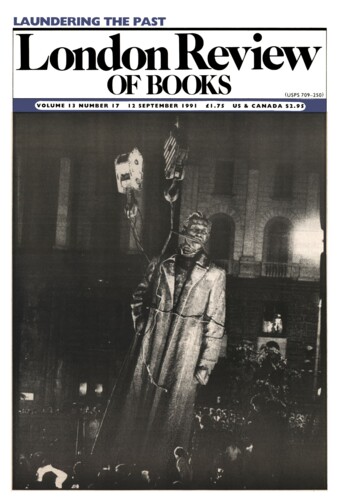First you get beaten up, then you beat up others
John Lloyd, 26 March 1992
Among the many thoughts which this sad, sometimes unreadably sad book suggests is this: did the Afghan war mark the beginning of the most dramatic military event of our time, the dissolution of the Soviet Armed Forces? Did the crumbling of belief and will which Zinky Boys documents erode the imperial reflexes of a militarised state to the extent that no strategy – whether sticking to the forms of orthodoxy or Communist reformism – could pull it out of the crisis?





